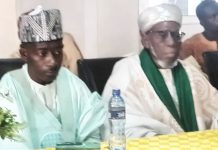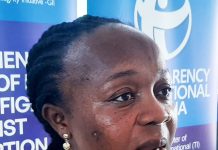About 200, 000 hectares of cocoa farms which were affected by the swollen shoot virus and were cut down in the Western North region, upon the directive from Ghana Cocoa Board (COCOBOD) have successfully been replanted and started bearing fruits
The rehabilitation project, which was financed by the Africa Development Bank provided jobs for the weeding gangs, who were hired by the government to cut down the economic trees and prepare the lands for the replanting.
It would be recalled that in 2017, the Ghana Cocoa Board embarked on the cocoa rehabilitation project through the cocoa districts of the country, where it cut down about 700,000 hectares of cocoa farms affected by the swollen shoot virus.
About 400,000 hectares of cocoa farms apart from the swollen shoot disease were also moribund and were no more bearing fruits. These were also cut down
Three years after the rehabilitation project started, the Chief Executive Officer (CEO) of COCOBOD, Joseph Boahene Aidoo, had led a team from his outfit to a tour of some of the rehabilitated cocoa farms in the Western North region.
The CEO’s team included; Wilson Yeboah, Regional Manager, John Acheampong, Administrative Officer, Evans Mantey, Deputy Director, Seed Production, William Opare, Engineer and others.
The team visited Akontombra, Yemetwa, Bodi, Kumikrom and other areas where the rehabilitation project is ongoing.
The District Cocoa Officer for Bibiani, welcoming the CEO and his team to Kumikrom Bankyease, said over thousands of cocoa trees on farms in the area were cut down with a total of 162,800 cocoa seedlings and plantain suckers consequently provided by government for the rehabilitation programme.
Addressing the farmers, CEO Boahene Aidoo was happy with the work executed by the cocoa farmers. He said watching the cocoa trees spring up, fruiting and the enthusiasm written on the faces of the farmers, he was happy with the whole exercise.
The Chiefs and people of Kumikrom commended Mr Boahen Aidoo and his office for his vision, which has led to the restoration of their cocoa farms.
The chief of Kumikrom and his elders consequently installed the Cocoa Board CEO as Nkosohene of Kumikrom.
PLANTAIN SEEDLINGS PARTNERSHIP
Meanwhile, COCOBOD, through the government of Ghana, has entered into a partnership with Kumad Global Impact Limited and Afarinick Company Limited to supply plantain seedlings for free distribution to farmers, under the cocoa rehabilitation programme.
Consequently, Kumad and Afarinick have acquired over 4000 hectares of land at Suaman-Dadieso for the plantain seedling nursery site.
The company uses heat, moisture and sawdust to develop the plantain seedlings and ready to nurse over one million of plantain seedlings for onward supply to the farmers under the rehabilitation programme.
Addressing Journalists at the plant site of the company, Mr Boahen Aidoo did not mince words when he pointed out that plantain suckers were part of the rehabilitation programme and would serve as shades for the cocoa trees.
“This is the first time we are seeing such a project in Ghana. Plantain suckers are very key in the ongoing national cocoa rehabilitation project because the plantain provides shades for the cocoa to grow and we need these plantains”.
In the meantime, he said, the company would supply the farmers one million plantain suckers and by the end of the year, a total of 35 million plantain seedlings would be supplied by the company for onward distribution to cocoa farmers.









